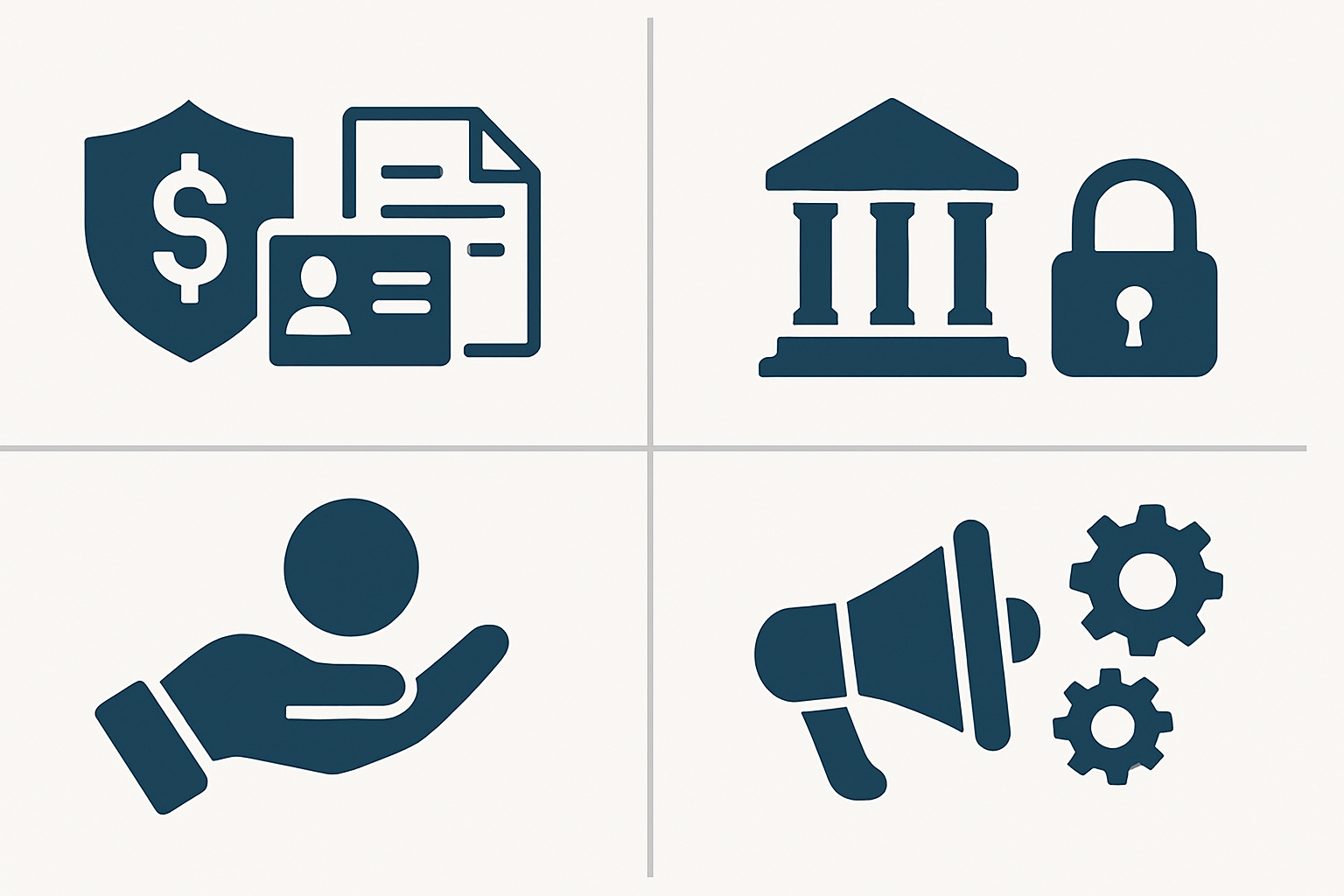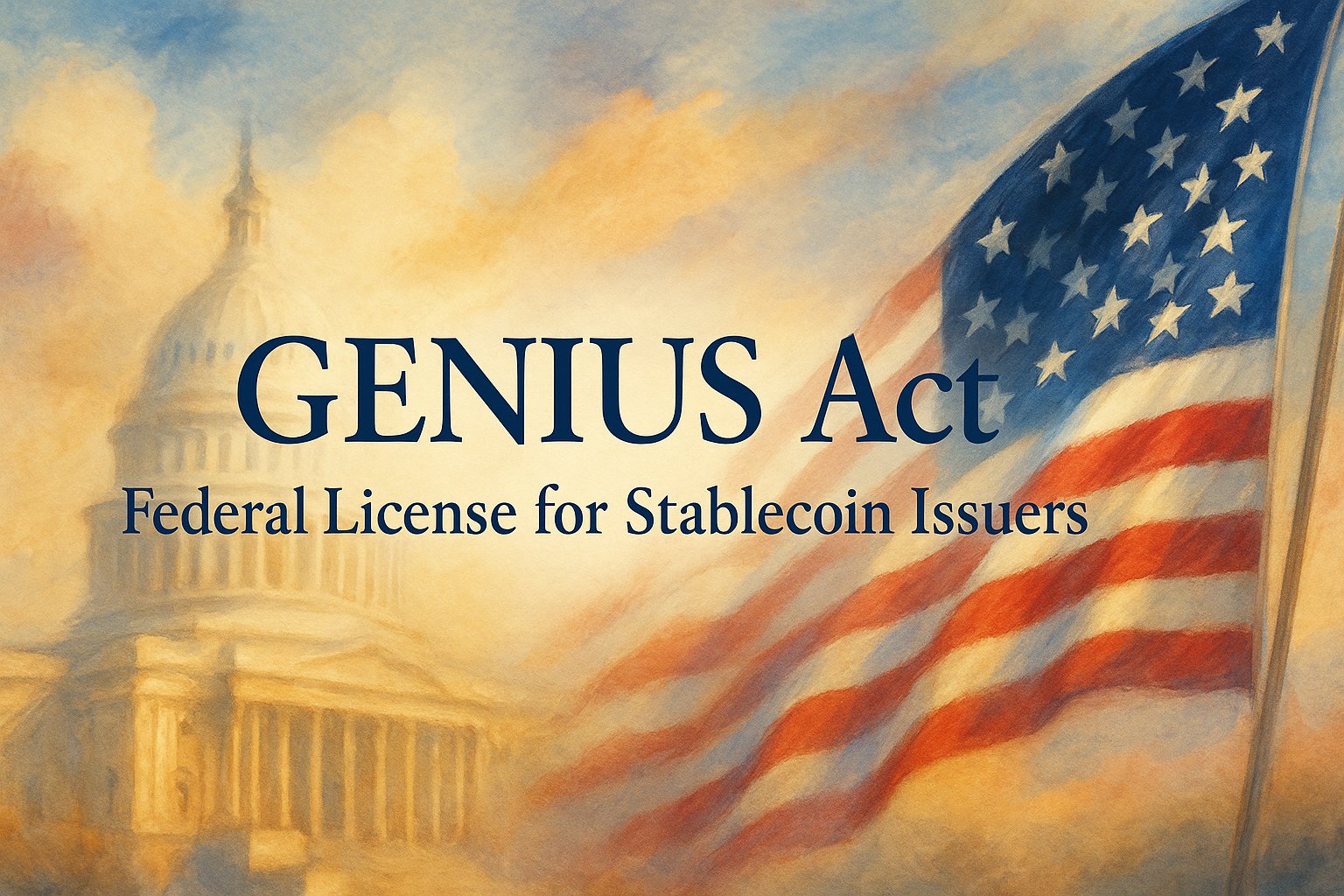
Stablecoins have long hovered in a regulatory gray zone within the United States, but the landscape changed dramatically with the passage of the GENIUS Act in July 2025. For legal and compliance teams, this landmark legislation is more than just another crypto law; it’s a seismic shift that replaces fragmented state rules with a unified federal framework. Let’s break down exactly how the GENIUS Act transforms stablecoin regulation, and what your team needs to know to stay compliant and competitive.

Mandatory One-to-One Reserve Backing: Raising the Bar for Transparency
First up, the GENIUS Act mandates that all permitted stablecoin issuers maintain reserves on a strict one-to-one basis. This means every dollar of stablecoin in circulation must be backed by an equivalent amount held in U. S. dollars or highly liquid assets like short-term Treasury bills. Gone are the days when ambiguous reserve disclosures were enough, now, monthly reserve reports certified by C-suite officers and reviewed by independent auditors are required.
This change isn’t just about regulatory box-ticking. It fundamentally boosts market confidence and solvency standards, while giving compliance teams new responsibilities for financial reporting and audit coordination. For more detail on these requirements, see our deep dive at GENIUS Act Explainer: 1: 1 Backing and Compliance.
Federal Licensing Requirement for Issuers: A New National Standard
The second major impact is sweeping: all stablecoin issuers must now obtain a federal license. This requirement effectively eliminates the old patchwork of state-by-state money transmitter laws that previously governed much of the industry. Instead, nonbank issuers must apply to, and be approved by, the Office of the Comptroller of the Currency (OCC), while subsidiaries of insured depository institutions also fall under federal scrutiny.
This creates a single national standard for who can issue payment stablecoins in the U. S. , streamlining oversight but also raising the bar for entry. Legal teams will find themselves navigating new application processes, drafting comprehensive compliance policies, and preparing for ongoing federal audits.
Key Impacts of the GENIUS Act on Stablecoin Issuers
-

Mandatory One-to-One Reserve Backing: Stablecoin issuers must maintain reserves equal to the value of outstanding stablecoins, held in U.S. dollars or similarly liquid assets. This requirement significantly increases transparency and solvency, ensuring that every stablecoin is fully backed and reducing risks for holders.
-

Federal Licensing Requirement for Issuers: All stablecoin issuers are now required to obtain a federal license, creating a unified national standard. This replaces the previous patchwork of state-level money transmitter regulations, streamlining compliance and oversight for issuers operating across the U.S.
-

Guaranteed Redemption Rights for Holders: The GENIUS Act mandates that holders have the legal right to redeem stablecoins at par value. This provision strengthens consumer protection and boosts market confidence by ensuring that users can always exchange their stablecoins for equivalent U.S. dollars.
-

Strict Marketing and Consumer Protection Rules: Issuers are subject to new prohibitions on deceptive marketing practices. Enhanced compliance oversight and legal review of all promotional materials are required, helping to protect consumers and promote fair, transparent communication.
Guaranteed Redemption Rights for Holders: Strengthening Consumer Protections
The GENIUS Act doesn’t just focus on issuers, it also delivers robust protections to consumers. Holders now enjoy an explicit legal right to redeem their stablecoins at par value, meaning $1 in always equals $1 out (barring fraud or criminal activity). In addition, if an issuer becomes insolvent, holders have a first-priority security interest in reserve assets, offering unprecedented peace of mind compared to previous regimes.
This provision requires legal teams to revisit customer agreements and redemption policies to ensure they meet these new statutory guarantees. It’s also likely to boost user trust and adoption rates as consumers gain confidence that their digital dollars are truly as good as cash.
Strict Marketing and Consumer Protection Rules: No Room for Deception
The GENIUS Act introduces sweeping prohibitions on deceptive marketing practices. Issuers must now submit all promotional materials for enhanced legal review and compliance oversight before publication. This means tighter controls over advertising language, risk disclosures, and claims about stability or redemption rights.
If your team handles communications or product launches, you’ll need updated checklists and approval workflows to avoid costly missteps, and potential enforcement actions from federal regulators.
For compliance professionals, this is a significant operational change. Every ad, press release, or website update must be scrutinized through the lens of the new federal standards. The days of vague marketing claims are over; transparency and accuracy are now non-negotiable. Legal teams should work closely with marketing departments to implement robust pre-approval processes and ongoing monitoring mechanisms.
What This Means for Legal and Compliance Teams
These four pillars, reserve backing, federal licensing, redemption rights, and strict marketing rules, are not just regulatory checkboxes. They represent a paradigm shift in how stablecoin businesses must operate in the U. S. The GENIUS Act’s unified approach introduces both clarity and complexity: while it streamlines oversight under a single national regime, it also raises expectations for transparency, consumer protection, and operational discipline.
If you’re navigating these changes for your organization, here’s what should be at the top of your action list:
- Audit Your Reserve Management Systems: Ensure real-time visibility into reserves and prepare for monthly independent audits.
- Prepare Federal Licensing Applications: Gather documentation on AML/KYC programs and risk controls for OCC review.
- Update Consumer Agreements: Clearly spell out redemption rights and procedures in all customer-facing documents.
- Revamp Marketing Workflows: Establish legal sign-off protocols for every piece of promotional content.
The stakes are high: non-compliance can mean enforcement actions or loss of license. But with careful planning and proactive collaboration between legal, compliance, finance, and product teams, firms can not only meet these new standards but use them as a competitive advantage. For a detailed breakdown of how to implement these steps within your organization, see our resource at GENIUS Act Explained: US Stablecoin Licensing and Reserve Rules.
The Road Ahead: Building Trust Through Compliance
The GENIUS Act’s ultimate goal is market stability, and that starts with trust. By enforcing one-to-one reserve backing and guaranteeing redemption rights at par value, the law addresses long-standing concerns about solvency risks that have shadowed the stablecoin sector. The new federal licensing process weeds out bad actors while empowering compliant firms to scale nationally without navigating conflicting state regimes.
As federal regulators continue to refine rules around cybersecurity, privacy risks, and ongoing supervision (with public comment periods still open), legal teams should keep an eye on evolving guidance from Treasury and OCC. Staying ahead means not just meeting today’s requirements but preparing for tomorrow’s updates as well.
If you’re looking for more practical tips or want to benchmark your approach against industry peers, check out our ongoing coverage at GENIUS Act 2025: What U. S. Stablecoin Issuers Need to Know.






